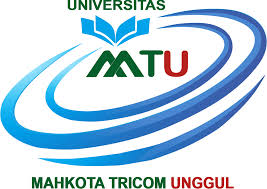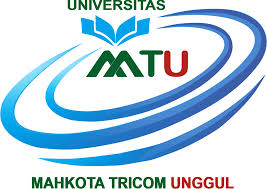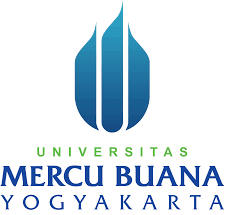The Influence of E-Learning-Based Learning Methods in Midwifery Courses on Midwifery Undergraduate Students' Learning Motivation
DOI:
https://doi.org/10.55927/fjst.v2i8.5242Keywords:
E-Learning Learning, Learning Motivation, Midwifery CareAbstract
This study aims to determine the effect of e-learning based learning methods in midwifery care courses on student learning motivation. This research is clearly analytic research with case control research method. Accidental sampling method, sampling technique slovin formula, univariate data analysis and bivariate analysis with Odds Ratio Analysis. The results of the study can be concluded that the results of statistical tests obtained OR = 0.070 (CI = 0.014-0.0314) which shows that E-learning has an effect of 0.070 times on student learning motivation compared to those who do not do E-learning. Because the OR value < 1 and the range of confidence intervals does not include number one, the hypothesis is accepted which means that E-learning based learning in midwifery care courses has an effect on student learning motivation.
Downloads
References
Agata, A. K. (2016). Gambaran Faktor-Faktor Yang Mempengaruhi Motivasi Belajar Mahasiswa Program Studi Ilmu Keperawatan Universitas Diponegoro Semarang. In Keperawatan, Jurusan Kedokteran, Fakultas Diponegoro, Universitas.
Aminoto, T. (2014). Penerapan media e-learning berbasis schoology untuk meningkatkan aktivitas dan hasil belajar materi usaha dan energi di kelas xi sma n 10 kota jambi. Sainmatika: Jurnal Sains Dan Matematika Universitas Jambi, 8(1), 221167.
As-Syifa, D. (2018). Media Pembelajaran.
Emda, A. (2018). Kedudukan motivasi belajar siswa dalam pembelajaran. Lantanida Journal, 5(2), 172–182.
Hadisi, L., & Muna, W. (2015). Pengelolaan teknologi informasi dalam menciptakan model inovasi pembelajaran (e-learning). Al-TA’DIB: Jurnal Kajian Ilmu Kependidikan, 8(1), 117–140.
Hartanto, W. (2016). Penggunaan e-learning sebagai media pembelajaran. Jurnal Pendidikan Ekonomi: Jurnal Ilmiah Ilmu Pendidikan, Ilmu Ekonomi Dan Ilmu Sosial, 10(1).
Hidayati, F. (2017). Peran Ayah di dalam Pengasuhan Anak. 6–50.
Imanah, N. D. N. (2022). PEMBELAJARAN DARING BERBASIS MASALAH DALAM PENINGKATAN MOTIVASI BELAJAR. Jurnal Pendidikan Dan Kebudayaan (JURDIKBUD), 2(2), 196–199.
Kodar, M. S. (2020). Nusantara ( Jurnal Ilmu Pengetahuan Sosial ). In Nusantara: Jurnal Ilmu Pengetahuan Sosial (Vol. 7, Issue 2, pp. 408–420).
Lidia Susanti, S. P. (2020). Strategi pembelajaran berbasis motivasi. Elex Media Komputindo.
Nata, A. (2018). Pendidikan Islam di era milenial. Conciencia, 18(1), 10–28.
Setyo, A. A., Kahar, M. S., Arsyad, R. Bin, Fathurrahman, M., Djafar, H., Hulukati, W., & Husain, A. K. (2021). Motivasi Belajar Mahasiswa Dalam Pembelajaran Daring Di Masa Pandemi Covid-19. In Pedagogika (Vol. 12, Issue 1, pp. 13–20).
Sujiwo, D. A. C., & A’yun, Q. (2020). Pengaruh Pemanfaatan E-learning Terhadap Motivasi Belajar Mahasiswa. In JUSTINDO (Jurnal Sistem dan Teknologi Informasi Indonesia) (Vol. 5, Issue 2, pp. 53–59). https://doi.org/10.32528/justindo.v5i2.3469
TANJUNGSARI, R. (n.d.). PENGARUH PEMBELAJARAN DARING TERHADAP HASIL BELAJAR PENDIDIKAN.
Downloads
Published
How to Cite
Issue
Section
License
Copyright (c) 2023 Marlina, Badriani Badawi

This work is licensed under a Creative Commons Attribution 4.0 International License.

































